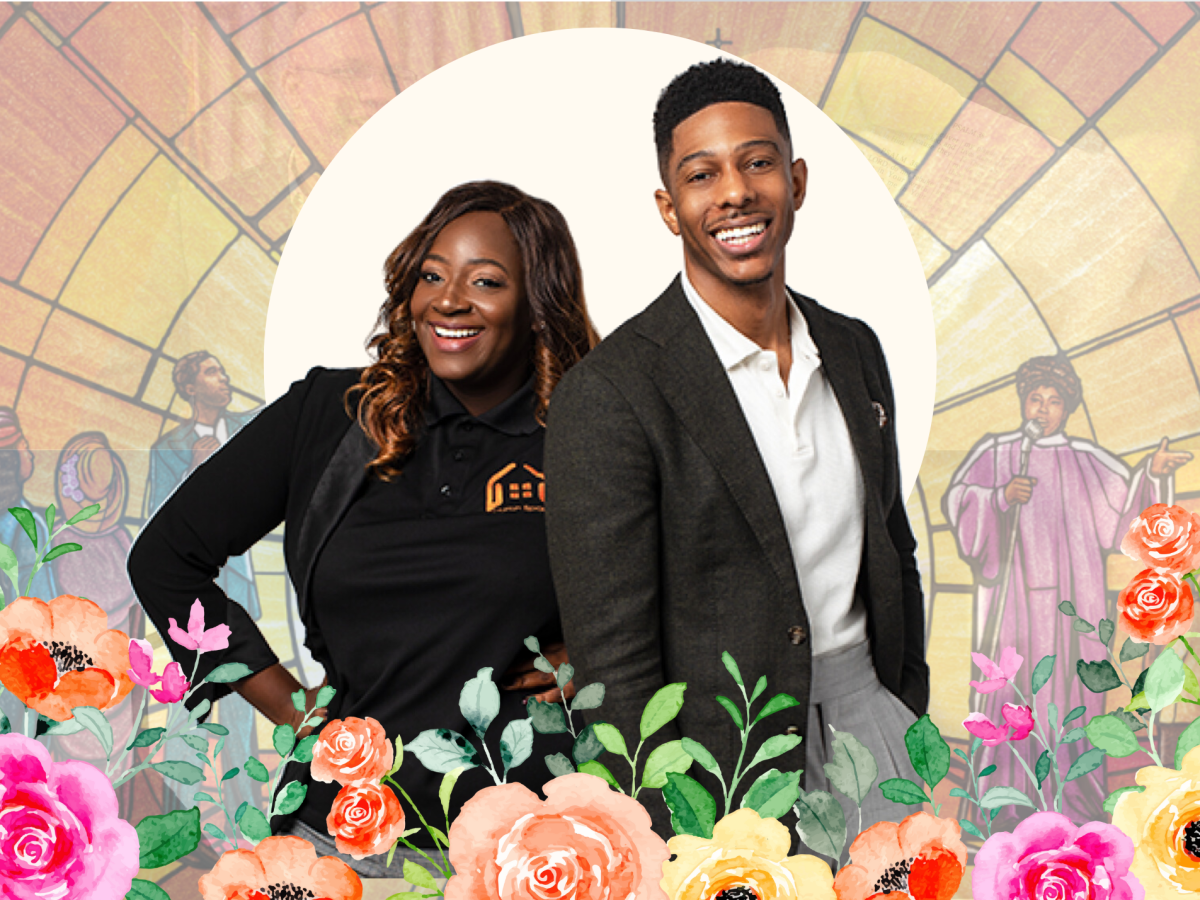
Our upbringings and childhood experiences shape our personalities and who we become. For Pastor’s Kids, the experiences in those formative years are specific and remarkably unique. As children of revered faith leaders, often idealized as moral and spiritual guides, minister’s kids are reared under the watchful eye of both congregation and community. The pressure to perform perfection is tremendous, and many take up the mantle of leadership early on. Day Edwards is intimately familiar with the experience: “Like most PKs, when you start a church, your family is probably its first members—so, we worked. I had to get up. I had to learn to greet people, I did the announcements. Really, I just helped my parents do everything a welcoming church community would do.”
When she wasn’t working in the sanctuary, Day was learning in the classrooms of Blackshear Elementary just across from Huston-Tillotson University, a private HBCU in East Austin. “Every summer, the college gave free tech and computer classes—mind you, this was back in the 90s. They taught us everything from Microsoft to software and web development,” she recalled. “I grew up knowing a lot about tech.”
In church culture, where one’s talents are used not only to make a living but also to serve the community of Christ, Day’s expertise made her the go-to resource for all things tech and online marketing. “I found myself working with adult services, teaching people how to create their websites and walking them through how to do a booking page. Essentially, how to sell themselves online,” she shared.
Her church-kid upbringing within the budding tech mecca of Austin, Texas, proved an ideal training ground for developing the self-assurance, knowledge, and leadership talents that would pave the way for a meaningful and purpose-driven career as a faith-based marketing entrepreneur, PR expert, and CEO.
Together with Emmanuel Brown, a New York City native and fellow preacher’s kid, Day Edwards launched ChurchSpace-a mobile app connecting business owners and event professionals with vacant faith-based venues for rent.
These days, vacant sanctuaries are unsettlingly plentiful. According to recent studies, only 20% of Americans attend church weekly, down from 42% in the early aughts. The pandemic furthered this decline, with attendance declining by four percentage points. With congregational rosters steeply declining and Black entrepreneurship at all-time highs, the app is a potential game changer.
ChurchSpace enables churches to generate additional revenue by offering affordable work, retail, and commercial kitchen spaces for businesses. It revitalizes struggling congregations while providing a platform for community economic growth. Launched in 2019 with $500,000 in funding from investors, including Google for Startups and Amazon Web Services, the app debuted at precisely the right time. Its PK founders are well-positioned to scale with their innovative approach and Airbnb-like business model.
I spoke with ChurchSpace cofounder Emmanuel, about his churchy upbringing, how he met and teamed up with Day, and their journey in turning churches—the nation’s largest real estate—into a cornerstone of their startup.
Emmanuel, do I understand correctly that you’re the analytical half of this dynamic team?
You hit the nail on the head. I am the more analytical, logical, low-energy, no-fun co-founder. [laughs] Day is the fun, upbeat partner—all energy and fireworks; I’m the fire hose that usually puts it out.
Sure, but we need you. The Day Edwards’ of the world need the ‘Emmanuel’s’ to balance that energy out.
Day: [laughs] That’s it. That’s exactly right.
Thank you, Ebony. I keep telling myself that.
Tell me about your background and what led you to this work.
So, the whole concept of even being a “tech founder” was foreign to me before, maybe eight years ago, when I started working in startups. I come from a really humble beginning, born in the Bronx; my family is all from the Bronx, New York. My mom was an educator and a pastor; my dad was a butcher and pastor, and they were both in the ministry. I grew up a PK, so I relate to everything Day said.
My parents got burnt out from the ministry. We moved at one point, and they talked about starting their own church again or merging with an existing church where we were. They tried to start their own ministry and found that the cost and burden were too overwhelming. So, by the time I was about 12, they had taken a big step back from ministry and just threw in the towel for a while.
They’re active now, pastoring in the church in their older years, so I think God made everything come full circle. But, as a PK, I felt the stress factors and the financial burden of them being in ministry during those earlier years.
So, fast forward—you’ve founded a startup that helps churches generate supplemental income. Would you say that’s providence?
For sure. It definitely wasn’t my plan. I never had a grand vision for what I wanted to be when I grew up. I didn’t graduate college and I actually had no clue what I wanted to do, but what I was good at—I had a knack for poking holes in things and a knack for problem-solving. I had a lot of different skills, and those skills led me in a lot of different directions. I didn’t have any language or concept for where I wanted to end up; I just knew I was good at problem-solving and leading people. But when I got into the startup ecosystem, it just clicked. I thought: Oh, this might be for me.
Everyone in a startup has somewhat of a leadership position; we’re being scrappy, solving problems, and executing strategy, so it felt really comfortable for my personality. So, for about eight years, I helped startups go from the seed stage to growth from a sales and operational capacity.
Right before I met Day, I was thinking differently about my role in startups. I knew enough to start my own thing. I was at this crossroads, thinking: What do I want to do with my life? I knew I wanted to start something—and that’s when God allowed Day and I to cross paths. We started talking about our origin stories, and I’m like: Yeah, I know exactly what you mean—that was my life, too. And something beautiful came out of it.
The rest, as they say, is history—Day and Emmanuel’s story and pitch presentation are documented for all to see. With over 350 churches already onboarded, the founders recently closed a partnership to add 1,200 more churches to the ChurchSpace platform, potentially increasing their market value by $9 million. With nearly 500,000 churches sitting empty most of the week, the growth potential is exponential.






